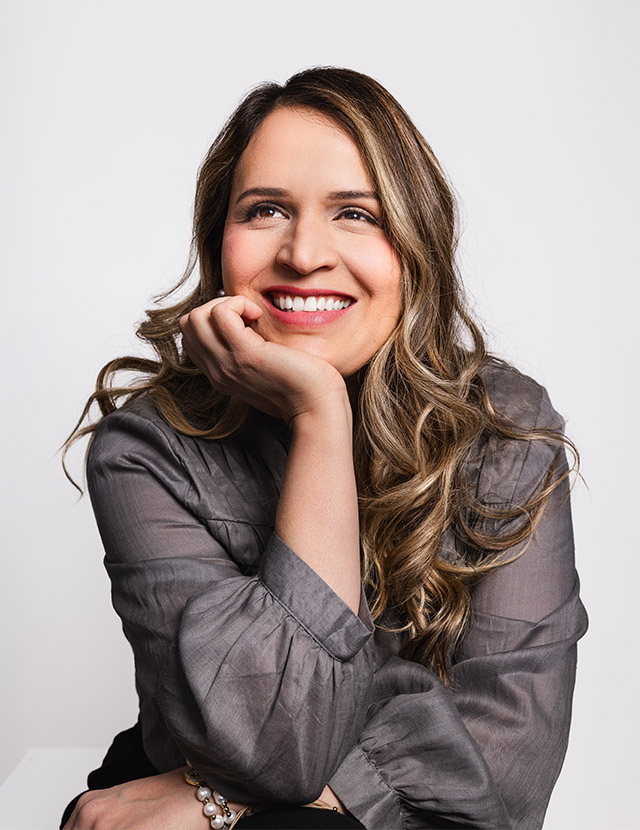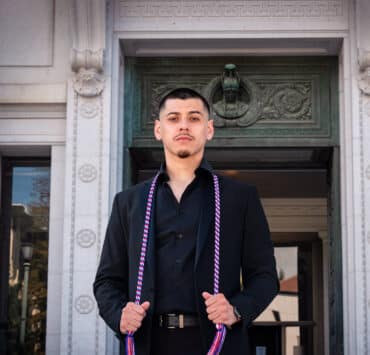|
Getting your Trinity Audio player ready...
|
Gaby Rios Giacona hasn’t ever shied away from making a difficult choice. The senior HR director at Unity was willing to relocate to Dubai to gain international experience for the Middle East and Africa regions while at an HR development program at Microsoft. Since joining Unity in 2018, she’s seen her areas expand year-over-year and offers advice to those looking to advance their careers.
Giacona was willing to speak with HE about her own immigrant experience, acting as a role model for Latinas, and the expertise she uses in order to drive change in HR.
As an immigrant to the US, I’d love to know more about your journey and your decision to take a role in the Middle East.
The immigration process for high-skilled workers in the US is extremely challenging since it consists of a lottery system. Like many immigrants in the US, my petition didn’t come through via the lottery, and I was offered an opportunity to move to either Japan or the Middle East. Despite multiple people, including friends and family, telling me not to move that far away for a second time, after leaving Venezuela, my home country, I picked the most undefined and uncertain of those opportunities.
There is a quote that says, “Experience is what you get when you don’t get what you want,” and I had to leave all of my assumptions behind, take a leap of faith, and take the risk. I was starting to grow in my professional career and working in an HR leadership development program, and I thought this would be a once-in-a-lifetime opportunity.
Looking back, this experience opened my eyes to an entirely different set of cultural norms, values, and ways of thinking that I hadn’t witnessed before. More than the actual HR experience, which I would say was very interesting, I ended up learning more about cultural differences and understanding of a vast and complex region such as the Middle East and India. I was based out of Dubai but ended up traveling a lot during that time frame, which is also a passion of mine.
How do you see yourself as a role model for Latinas? What parts of your story do you think can be of inspiration and motivation for younger Latinas who may want to emulate your career?
I’ve learned to embrace my heritage and show younger generations and aspiring Latina leaders that authenticity is exactly what corporations need more of, not the opposite. I make a conscious effort to bring my true self to work every day and in every interaction, rather than trying to blend in or assimilate to American culture and corporate America’s expectations.
As a Venezuelan immigrant, I face unique challenges, such as raising my children outside of my home country, maintaining my family orientation, and preserving my cultural traditions, including my food and music. I’m a passionate leader who believes that the opportunity to lead and influence is a privilege that requires compassion, trust, and transparency.
As a millennial leader, I believe that vulnerability is a catalyst for change and role modeling. The expectation that leaders, especially female ones, have it all figured out and show strength and unbreakability is fundamentally wrong. I strive to show my teams, leaders, and people I influence every day that it’s acceptable to take a mental health break, prioritize family, or be a working parent who juggles daycare closures and other challenges on a weekly basis.
At a more personal level, I took a mental health-related break for an underlying condition after having my first son. Instead of pretending that everything was fine, I prioritized myself and my health.

This led to two great outcomes: my team felt they had permission and a model to follow, and most importantly, I took care of myself with the support of my company and leadership. During my maternity leave, I also launched a podcast in Spanish to talk about these issues, but also discuss modern topics with leading women in different fields. My idea was to shed some light to some of the challenges Hispanic women face nowadays in a more relatable manner. While it’s been hard to juggle work, maternity, and producing my own podcast, I am excited to continue telling stories of women who don’t have a platform but also that my listeners can relate to.
How can HR be a catalyst for change, broadening representation, and sourcing unique and diverse talent?
The majority of my role entails influencing senior leadership. I help leaders set the tone on representation and why it matters. Not everyone has a seat at the table and since I have that opportunity as an HR leader, I can drive the right conversations, push for agenda on DEI initiatives, and certainly influence decisions as it relates to hiring, promoting, and developing our employees. However, we also have to stop thinking this is HR’s agenda only. It’s not. Leaders at all companies need to be incentivized and care about broadening representation, opening leadership roles, having diverse panels, and interviewing diverse slates of candidates, to mention a few.
There is a part of this that needs to hone on accountability for the leaders and foster a culture where diverse perspectives are welcomed and people with multiple backgrounds, race, ethnicity, and religions feel there is a place for them to thrive. You do nothing spending thousands of dollars on sourcing and hiring diverse talent if the environment is not set up for diverse talent to succeed. This is particularly important in hybrid work environments, which can amplify in-group versus out-group dynamics and exclude specific groups.
What is one thing you wish more people understood about driving change in HR?
In the dynamic landscape of today’s business world, the role of human resources has been dramatically redefined. HR is no longer confined to traditional personnel management, and instead has emerged as a strategic linchpin, orchestrating changes, influencing key decisions, and mitigating potential risks.
In my view, HR now plays a crucial role in aligning the workforce strategy with the overarching business goals, creating a synergy that drives growth and innovation. It’s about cultivating a positive work environment that not only fosters professional growth but also fuels success for the organization.
I’d even say there has never been a more exciting time to be an HR practitioner, to be at the helm of this evolution, steering the organization towards better outcomes and more inclusive work environments.
Finally, is there anything in the next year or so that you’re looking forward to tackling?
I’m excited to embark on an HR transformation journey at my company, moving towards a more agile model. This involves a blend of roles and responsibilities that are still in the design phase. We’re currently evaluating our goals for the year, and I foresee a series of projects on the horizon. One crucial project is investing in middle management, especially during these turbulent times in the technology sector. We want managers to be talent magnets, inclusive, and supportive, and that’s an area that I’d put some of my bets for 2024.
Torch is the People Development Platform that unlocks the potential of people, teams, and organizations. With Torch, you can deliver inclusive, integrated, and impactful coaching and mentoring programs that drive the success of your people—and your organization. Leading brands use Torch to develop their people, create stronger leaders and managers, and drive business performance. To learn more about Torch, please visit torch.io.

